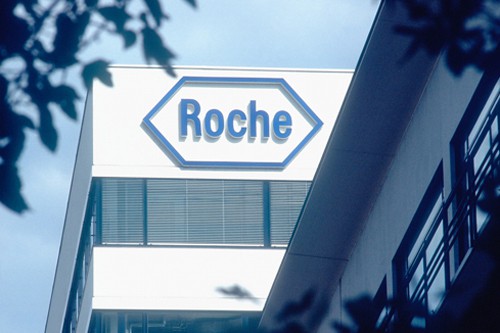
A group of influential doctors is calling on the NHS in England to use Roche’s cancer drug Avastin (bevacizumab) off-label for a debilitating eye condition as it is a cheaper alternative to the patented medicines for the disease.
Clinical leaders from 120 Clinical Commissioning Groups, representing almost 60% of all CCGs, have come together to call on all stakeholders to remove the current barriers preventing CCGs from using the drug Avastin ‘off- licence’ to treat wet age-related macular degeneration (AMD).
This call is directed at the UK doctors’ regulator the General Medical Council, the Department of Health and NHS England.
Currently, GMC guidance and European drug licensing laws say that Lucentis (ranibizumab), from Novartis and Roche, and Bayer/Regeneron’s Eylea (aflibercept) – that are approved to treat wet AMD – should be the first choice of treatment for the condition.
Doctors can prescribe drugs off-label – i.e., for conditions they think may be clinically suitable for a medicine but for which it does not have a licence. This is typically reserved for medicines in young children.
But a number of ophthalmologists in the UK, and in fact across most markets, have been prescribing Avastin ahead of Lucentis and Eylea because it is around a tenth of the price of the licensed alternatives.
Avastin only has cancer licences, but it is chemically similar to Lucentis, meaning it can be successfully used for wet AMD. In fact, Roche co-markets Lucentis with Novartis in certain markets as Lucentis is the ‘chemical cousin’ of Avastin.
Safety and efficacy
Over the past three years a number of UK and US government-funded trials have shown that Avastin is as efficacious and safe as Lucentis in treating wet AMD (although there is no direct comparison with Eylea as yet).
Novartis maintains that because of the way Avastin is used for wet AMD, it may increase the risk of infection for some patients, and has actively lobbied against the use of the drug for wet AMD – a position Roche also holds.
The situation came to a head in 2012 when the Swiss firm attempted to sue an NHS Trust in order to get it to stop using Avastin off-label. It eventually dropped the lawsuit after the Trust agreed to use Lucentis instead, but only after Novartis offered a significant price cut.
Cost and savings
But the doctors’ group says that Avastin is the best drug to use in times of tight budgets.
It says that supporting CCGs to be able to use Avastin to treat AMD could release just over £100m back into the NHS, which it could then re-invest into other front-line patient services.
Dr Amanda Doyle, chief clinical officer at NHS Blackpool CCG and co-chair of NHSCC, says: “This is a long-standing issue within the NHS and the numbers of CCGs who have united behind this shows the strength of feeling there is to ensure that we have all the available options to be able to deliver the best possible care for our patients.
“As clinicians we are seeing an increase in the incidence of this chronic eye condition due to an ageing population, and as commissioners we have a responsibility to ensure that every pound spent is done so to the best effect, and that is even more important with the current financial pressures the NHS is facing.
“Members of the public would be baffled if they knew the sums of money being spent on expensive drugs when there is an alternative available that is cheaper and as effective”.
The group has sent a letter to the main stakeholders:
- Asking the GMC to provide a specific exception to their standard guidance to support practitioners who wish to prescribe Avastin ‘off-licence’ for use in the eye on the basis of clinical and cost effectiveness
- Asking the secretary of state for health to ask NICE to consider the status of the current Technology Appraisal guidance and authorise NICE to undertake an multiple treatment appraisal looking the comparative cost effectiveness of Avastin with Lucentis and Eylea
- Asking Simon Stevens at NHS England to support the case for change and to support clinical commissioners who wish to make local commissioning decisions to prescribe Avastin ‘off-licence’ on the grounds that it is safe and a cost effective treatment.




